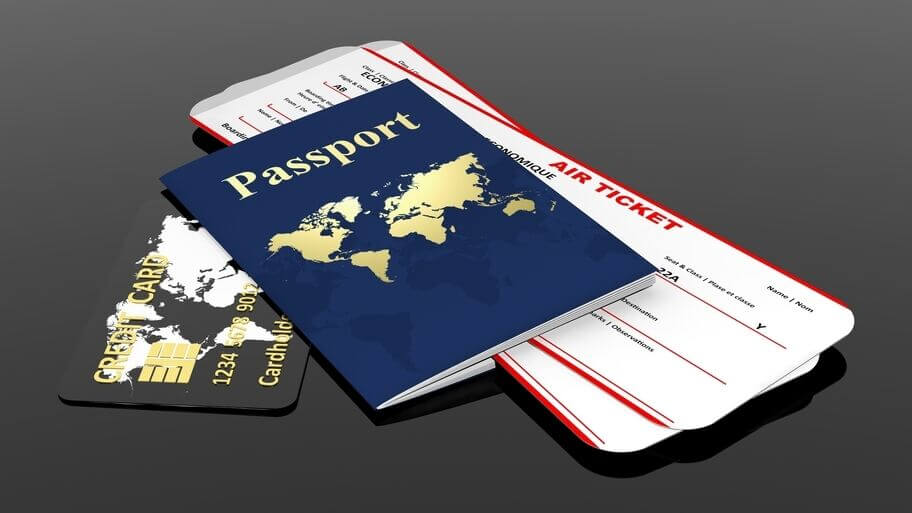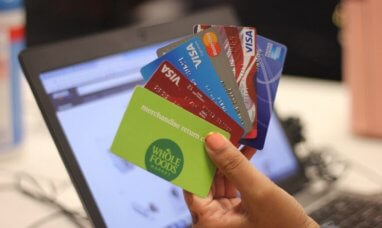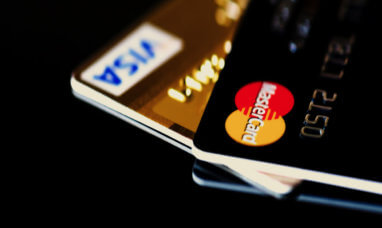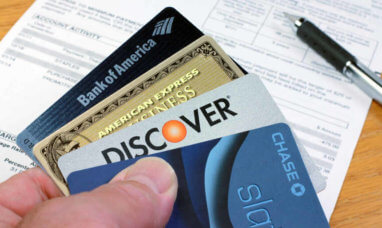With Covid-19, travel has all but ground to a halt. Due to the dangers of spreading the pandemic, state and country borders have been forced to close. Now, post-vaccination, travel is slowly beginning to rebuild as it becomes safer to venture forth.
A great incentive to help you with a travel return to form are rewards credit cards. There are three different styles of rewards, and they can net you some serious savings to make easing back into the swing of travel that much easier. Here’s how credit cards help you travel!
Is a Travel Card a Good Option?
Rewards cards, in general, have a high-interest rate. If you are able to pay off your balance every month to avoid those fees, have no debt, and are (or plan to be) a frequent traveler, then a travel card might be a great idea to save you money.
Your credit score is a major deciding factor as to whether you can access a higher-tiered reward card. If you have a FICO score of around 763 or higher, you have a higher chance of scoring greater rewards cards.
There are many options to help you increase that score if you are low, the greatest of which is to have a satisfactory credit card payment history, a great debt to credit limit ratio (30% or less), and have long-standing credit accounts. If you are paying off your balances every month and these requirements are met, you will have a better card in no time.
Types of Rewards
What is important to keep in mind is that there are three major types of reward categories: miles, points, and cashback. Sometimes these can be confusing, and understanding these concepts will help you decide which is the best option for you.
-
-
- Miles – These are typically tied to a specific airline’s frequent flyer program and will provide you with free airline tickets as a reward for using their airline regularly.
-
-
-
- Points – These can be used in the same fashion as miles but are a little more versatile, allowing you to exchange these for a wider assortment of prizes and services.
-
-
-
- Cashback – Rather than points or miles, cash back rewards cards offer you percentages back on your transactions, making these cards the most versatile option. They are also simpler to deal with as the concept is more straightforward.
-
Keep in mind, different types of cards offer different quality rewards for different goods and services, so having a few different cards which feature different rewards can actually maximize your savings.
Best Credit Cards of July 2024
Travel Card Considerations
When looking into a good travel card, here are some points which merit careful consideration:
-
-
- Introductory Offers – Be careful with introductory offers. While they can sometimes offer such prizes as free vacations, sometimes the requirement to earn that vacation offsets the value of the deal. If you decide it is worth it, try to schedule your trip during a time when you can naturally acquire the terms.
- Annual Fees – If you do not travel often, you may want to consider a card with no annual fee. If you opt for the greater rewards, make sure your rewards are worth more than the increased cost!
- Shop Around For Rewards – There are a wide variety of rewards cards out there, so compare them to find which one will save you the most money. If you aren’t managing to score money-saving perks matching within 1.5% to 2% of your spending, then you should be looking for an upgrade.
- Protection – A card that provides protection from travel cancellations or insurance for lost baggage or rental insurance is a better option.
- Foreign Transaction Fees – If you often go abroad, keep in mind that many cards charge a foreign transaction fee that is typically 3%. Seek out a card that provides you with free foreign transaction fees to make the best out of overseas travel.
-
Are Cashback or Miles Credit Cards Better?
This depends on you.
Travel cards typically provide a greater average reward value, but only if you take the time to plan carefully in order to take the greatest advantage of the offers available. If you do, you can earn more than the 1-2% value that a cashback card can provide.
However, if you’re not good at meticulous planning, then the flexibility of the cashback card may prove better for you due to its simplicity. You know how much you will be saving, and it will be a flat rate across the board. You won’t have to worry about timing.
The Best Way To Get Credit Card Points
Following these guidelines will help you receive optimum value:
-
-
- Welcoming Bonus – Often, travel cards have a welcoming incentive program. If you can meet the minimum requirements, you can activate that bonus for a nice reward.
-
-
-
- Bonus Offers – Take advantage of any bonus offers, including those for referrals, adding authorized users, or additional spending bonuses.
-
-
-
- Virtual Malls – Some cards reward you for using online shopping portals. If you are savvy, you can even earn double the bonuses by using specific rewards cards.
-
-
-
- High-Value Transactions – Some cards offer rotating offers to provide higher value for specific services during a period of time. Take advantage of that to gain better rewards. Also, keep in mind different cards have different specializations. Owning more than one can net you a wider variety of good deals.
-
Chase Sapphire vs. Bank of America Travel Rewards
These are two top rewards card companies. Here is an evaluation of what they offer:
Welcome Bonus
Chase: 60,000 points after spending $4000 in the first three months
BoA: 25,000 points after spending $1000 in the first three months
Annual Fee
Chase: 95$
BoA: 0$
Point Value
Chase: 2 cent
BoA: 1 cent
Earning Rates
Chase: Chase Ultimate Rewards Travel x5, Dining x3, Streaming services x3,
Online Grocery x3, Other Travel x2, Other x1
BoA: All Purchases x1.5
Comparing rewards cards side by side can help you determine which options work best for your lifestyle and budget. Creating a visual representation of the cards you are considering is generally a good idea to help you shop around and determine the best deal.
Featured Image: Megapixl








